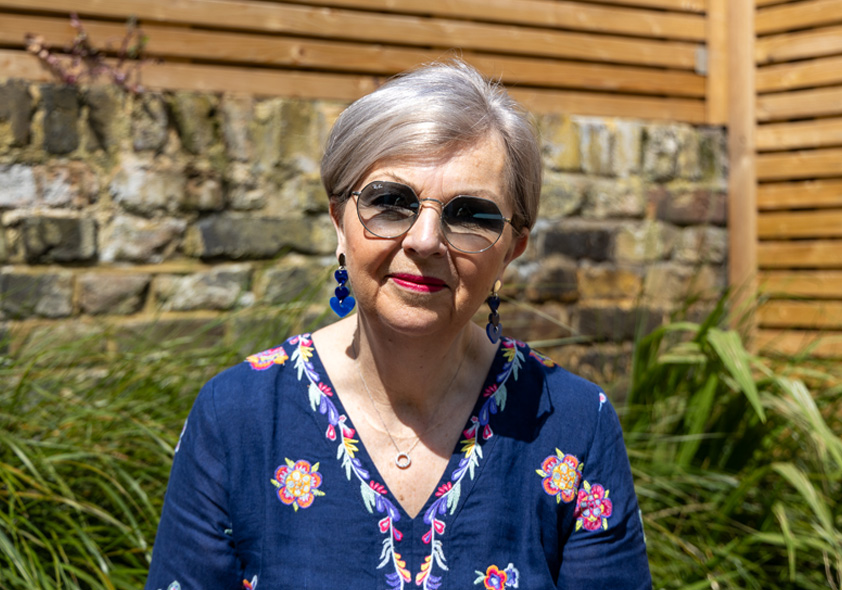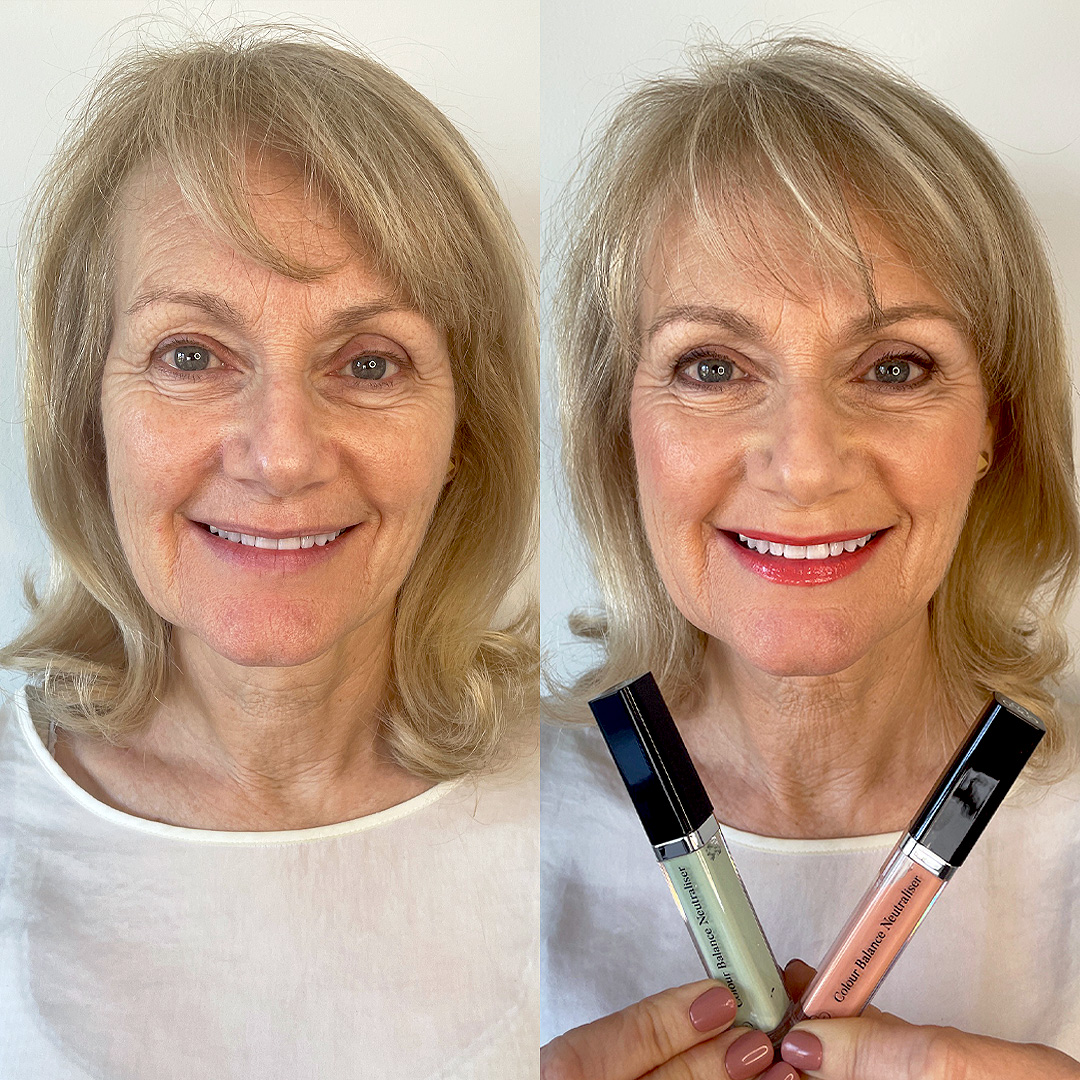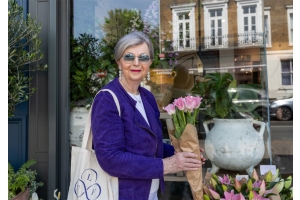
I am going to start with a brief tribute to my ‘wellness’ hero, Dr Michael Mosley who was found dead a week ago today. For three long and worrying days I think we all nurtured a hope that, by some miracle, he would be found in time to save his life. It was not to be. The outpouring of grief and sadness on social and news media from his family, friends, colleagues and people like me who just loved how he taught us all about healthy living, was spontaneous and genuinely moving. I intend to write a much longer account of the myriad ways Dr.Mosley has impacted the world, but for now, I will just say: Rest In Peace lovely Dr. Mosley, I, and many others like me, will miss your wise guidance dreadfully.
Mosley died on holiday in what was, effectively, a freak accident at the relatively young age of 67. He was fit and healthy, but that was no protection against exposure to the 40º heat. His death underlines a truism: that we really should live life to the full every day because it could, quite literally, be the last one that we will have.
But how? How do you live life to the full every single day, if today all you have done is go to the supermarket to buy some apples? I think that I may have the answer for you and it’s not as difficult as you may imagine.
I found my answers in a film I have now watched twice and which I chose as our film club pick a couple of weeks ago. Everyone loved the film and we were all moved by what it managed to convey about a life stripped down to the barest essentials for the body, mind and soul but which is, in fact, rich in everything a human being needs in order to be fulfilled and happy. The film is called ‘Perfect Days’ by the director Wim Wenders. It stars Koji Yakusho as the central character Hirayama and is set in Tokyo. Unsurprisingly, because he is brilliant in it, Yakusho won Best Actor for the film at Cannes in 2023.
I’ll start by giving a brief description of the film and then detail all the ways that Hirayama has found to fill his ‘Perfect Days’ with joy and happiness.
At the start we see Hirayama waking up in a small, bare room and rolling up the mat and bedding on which he has slept and storing it in a corner. He appears not to have a proper bathroom and only a rudimentary kitchen, and the blue printed overalls he puts on tell us that he works as a cleaner for The Tokyo Toilet Company. Having brushed his teeth in his only sink, he goes outside, buys a canned drink of coffee from a vending machine in his yard and drives his work van onto a busy motorway. He puts a cassette tape into the van’s player and smiles as The Animals belt out ‘The House of the Rising Sun.’
Over the next couple of hours we become familiar with all the ways that Hirayama derives pleasure and satisfaction from his quotidian life. On leaving his home every morning he stops and takes a moment to look up at the sky, as if welcoming the day. If he sees a small seedling poking through in the park where he enjoys his lunch, he carefully digs it up to take home for his collection of tiny plants that he tends assiduously. At lunchtime he keeps looking up at the lattice of leaves above his head and, using his old-style wind-on Olympus camera (with a film which will need to be developed), he takes a couple of photographs of the patterns made by the leaves to add to his collection of such images.
Hirayama’s work as a cleaner of some of the most beautiful, architecturally designed public toilets (possibly) in the whole world is done with studious thoroughness. He almost treats each one as a kind of shrine to perfect cleanliness, even taking a small mirror which he has added to his equipment to check surfaces from underneath. We also see him after work, cleaning his body and hair just as assiduously in the public baths. He then goes to a food stall in a mall for his evening meal, where, as a regular, he is greeted with kindness, enthusiasm and a large bowl of food. Finally we see him winding down at home, lovingly planting up his little seedling and then unrolling his sleeping mat and positioning a desk lamp so that he can read a translation of a William Faulkner book that he has bought second hand. It’s the end of another Perfect Day.
It becomes clear during the film that Hirayama has chosen to live this life, stripped down to the bare essentials needed for him to be fulfilled and happy, because of something in his past. His unhappy teenage niece turns up unexpectedly and Hirayama is kind to her, but it is obvious from his encounter with his horrified sister who arrives in a chauffeur driven car to collect her runaway daughter, that the relationship with his family, especially his father, has not been a happy one. From this we understand that Hirayama is an educated man from a wealthy family who has, for some never explained reason, chosen to live a pared back life and to work as a toilet cleaner.
As sometimes happens with a deeply moving and thought-provoking film, ‘Perfect Days’ has stayed with me, mainly because it illustrates so brilliantly what it means to live mindfully. I have long grasped the notion of mindfulness as ‘living in the moment’ without finding a way to actually do it! So, this is the learning that I have taken away from Hirayama’s life to make sense of my own:
Ritual. There is a rhythm and ritual to Hirayama’s life that gives it structure, purpose and meaning. He does the same or similar things every week day and every weekend, but this is portrayed not as boring and mundane but essential to his well being. He starts the day by rolling up his bedding and ends it by unrolling it again, and we know that he’ll do the same thing tomorrow and tomorrow and tomorrow.
Body and Mind. Hirayama keeps his simple home and himself scrupulously clean, using the public baths every day and the laundrette every week to wash his clothes. We see in his work that cleanliness is important to him and he manages to look immaculate in his blue work overalls. He chooses music and books for a daily dose of intellectual stimulation, playing his old and beloved cassette tapes whilst driving between jobs, and winding down every night with a work of literature to stimulate his mind.
Caring and love. Hirayama lives an apparently solitary life but he is neither a recluse nor a misanthrope. We see him kindly rescuing a small distressed child who has hidden from his mother in a toilet. We see him engage with an old tramp in the park whom most people shun. He is welcoming to his niece whose sudden appearance greatly inconveniences him, but he immediately allows her to stay and then looks after her. All day he encounters people, many of whom ignore him as a lowly toilet cleaner, but those who do know him greet him with kindness and enthusiasm, and in the case of the owner of the restaurant he frequents every Saturday, with love.
Stopping and Noticing. Every morning Hirayama pauses on the threshold of his home to look up at the sky. He sits in the park every lunchtime taking in the sights, the other people, and the patterns made by the leaves above his head which he photographs. He notices the delicate little shoot peeping out of the ground and carefully collects it to plant later, and he discovers that a visitor to one of the toilets has started a secret game of noughts and crosses, and decides to join in by adding a cross and hiding the paper again over several days.
Passions and Enthusiasms. In his room, Hirayama has four sets of collections. His carefully nurtured plants, his shelves of cassette tapes, his library of books and a cupboard filled with boxes of carefully dated and stored black and white photographs of the images he takes of the leaves and trees in the park that he takes every day. It’s clear that these passions are important to him and bring him great pleasure.
Simplicity. Hirayama leads an analogue rather than a digital life. He has no smartphone, smart television or hi-fi stereo on which to play his music. He lacks a kitchen with all mod cons or a gleaming bathroom with a built-in self cleaning toilet (which are apparently a thing in Japan). The film briefly features three teenagers, his niece, his young co-worker and girlfriend, all of whom are glued to smartphones and all of whom appear to be both dissatisfied and restless.
Watching ‘Perfect Days’, I have finally understood what a ‘mindful’ life might look like. It is about the importance of nurturing your mind, body and soul via everyday rhythms and rituals. It’s about caring for yourself and others, whether those others are close to you or not. And finally it is about a daily celebration and awareness of what is around you whilst especially valuing everything that brings you pleasure from the moment you open your eyes to the moment you close them again for the blessed relief of sleep.
Maybe it is salutary that film director Wim Wenders, who is German, decided to set his wonderful film in Japan, which has among the most long lived people in the world. If the older generation lives in a similar way to Hirayama, I think ‘Perfect Days’ may explain why that may be the case.
The film ‘Perfect Days’ can be seen on Amazon Prime and Curzon Home Cinema.
Tricia x
Watch Our Latest Video...
How To Disguise Redness and Dark Circles
Sally shows you how to disguise redness and circles, using lighter makeup for the hot summer months ...














